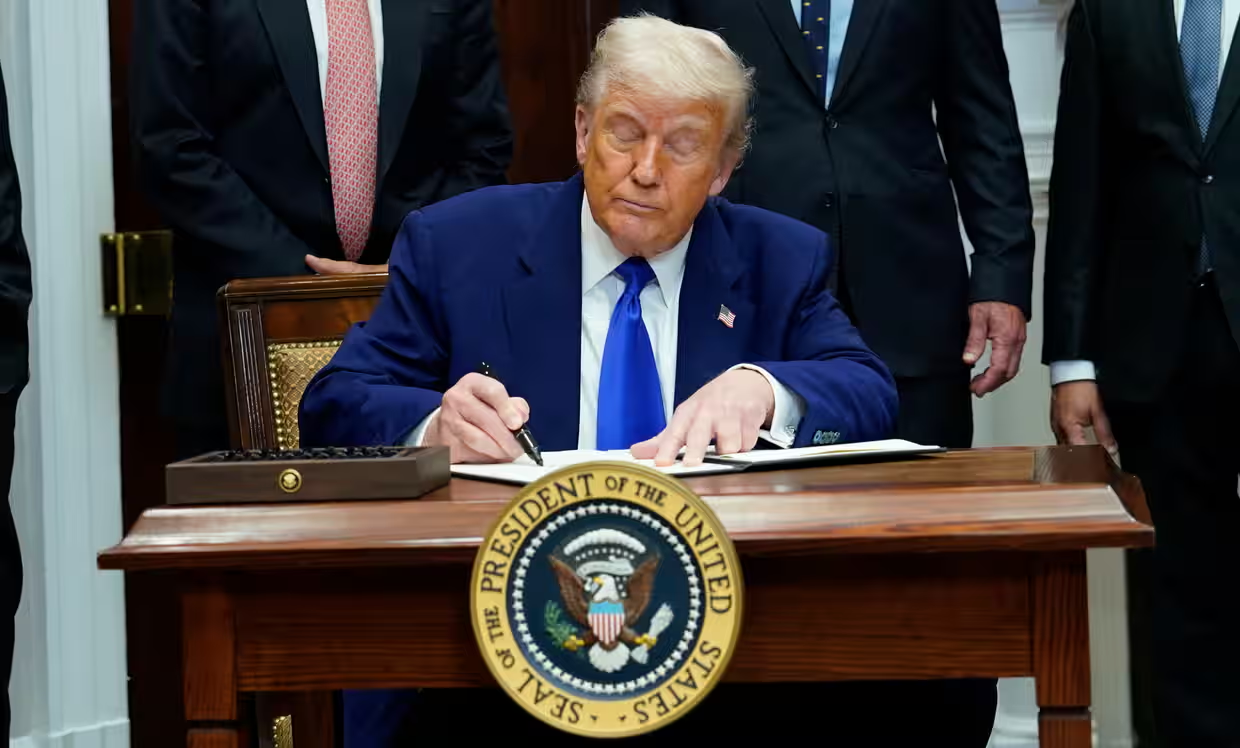Despite a more conciliatory tone with China, experts say there will be no immediate end to unpredictable US trade policy
In the wake of President Donald Trump’s recent imposition of a 10% tariff on Australian exports, analysts argue that the broader market uncertainty stemming from his unpredictable trade policies poses a more significant threat to Australia’s economy than the tariffs themselves.
Tariffs Introduce Immediate Challenges
The 10% tariff has directly impacted Australian industries, particularly steel and aluminum exports. Companies like BlueScope have expressed concerns over reduced competitiveness in the U.S. market. Additionally, the pharmaceutical sector faces potential challenges due to Trump’s executive order mandating the U.S. government to purchase prescription drugs at the lowest global prices, which could lead to increased drug costs in Australia as pharmaceutical companies adjust pricing strategies to offset revenue losses .
Unpredictable Policies Fuel Market Volatility
Beyond the immediate effects of tariffs, Trump’s erratic approach to trade policy has introduced significant uncertainty into global markets. His administration’s abrupt changes, such as the temporary suspension of tariffs on Chinese goods, have left investors and policymakers grappling with unpredictability. This volatility has led to sharp declines in Australian share markets, with the ASX 200 experiencing a 1.8% drop, marking a six-month low .
Analysts emphasize that such unpredictability hampers long-term investment and strategic planning. Dr. Vladimir Tyazhelnikov from the University of Sydney notes that the lack of transparency in implementing tariffs disrupts global supply chains and raises costs for businesses and consumers alike .
Broader Economic Implications
The ripple effects of U.S. trade policies extend beyond direct trade relationships. Australia’s economy, heavily reliant on exports to China, could suffer if Chinese demand diminishes due to its own economic slowdown prompted by U.S. tariffs. Grain Trade Australia warns that increased competition and potential price drops in global grain markets could adversely affect Australian farmers .
Furthermore, the Australian dollar has experienced volatility, influenced by shifts in global trade dynamics and investor sentiment. While a weaker dollar can benefit exporters, it also raises the cost of imports, contributing to domestic inflationary pressures .
Government’s Cautious Approach
In response to the evolving trade landscape, the Albanese government is adopting a measured strategy. Recognizing the challenges of negotiating with an unpredictable U.S. administration, Australian officials are opting to observe developments before engaging in comprehensive trade discussions .
This cautious stance reflects a broader understanding that the uncertainties introduced by fluctuating U.S. trade policies may have more profound and lasting impacts on Australia’s economic stability than the tariffs themselves.





